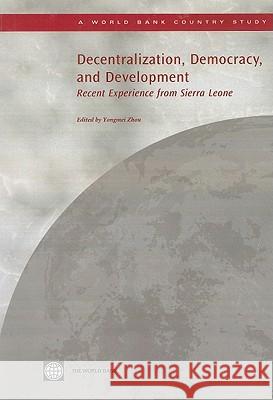Decentralization, Democracy and Development: Recent Experience from Sierra Leone » książka
Decentralization, Democracy and Development: Recent Experience from Sierra Leone
ISBN-13: 9780821379998 / Angielski / Miękka / 2009 / 150 str.
The question of whether political, fiscal, and administrative decentralization improves government effectiveness is hotly debated among researchers and policy makers. 'Decentralization, Democracy, and Development' contributes to the empirical literature on decentralization and the debate on whether it is a viable and desirable state-building strategy for post-conflict countries. This book is a collection of eight papers written by nine authors who were intimately involved in the complex decentralization reform process in Sierra Leone from 2003-07. During this period, Sierra Leone's government established elected district and urban councils across the country, transferred certain responsibilities for primary services and local investment and some financial resources to the new councils, and invested heavily in building the administrative infrastructure and capacity of the local councils. Compared to most other Sub-Saharan African countries that have embarked upon decentralization, Sierra Leone's progress in building local government capacity and restructuring the fiscal system is enviable. The authors conclude that improved security and public services are possible in a decentralizing country and Sierra Leone's progress would not have been possible without significant effort at fiscal decentralization and intensive investment in local government capacity building. The most critical ingredient for this promising but fragile reform process is the dynamic leadership team in charge of promoting the new institutional framework and their persistent effort to achieve quick improvement in the local government system and public services.











